By : Kurnia MH, MINA Journalist
One of the practices that can be done during the holy month of Ramadan is dhikr, remembering Allah and thinking about the greatness of Allah.
Dhikr is one of the worships of a person always remembering Allah. Because dhikr is the key to peace and happiness in life in this world and prosperity in the hereafter.
Dhikr and thinking can be done at any time and under any circumstances, directly verbally or say in the heart. Dhikr has many virtues, especially if it is read every day in the month of Ramadan. Prophet Muhammad as a role model for Muslims always practice dhikr every day.
Also Read: Verses of the Universe in Gaza: The Unyielding Light of Faith
With dhikr, we are not only promised a reward but also given ease in every problem we face in life.
فَاذْكُرُوْنِيْٓ اَذْكُرْكُمْ وَاشْكُرُوْا لِيْ وَلَا تَكْفُرُوْنِ
“Therefore, remember Me, I will remember (also) you, and be grateful to Me, and do not deny (favors) Me.” (Surah Al Baqarah: 152)
In the Qur’an there are many verses that show the commandment for humans to dhikr and think to always pay attention to the universe and the greatness of Allah.
Also Read: Prophet Sulaiman Alaihi Salam, the Greatest Muslim King of All Time
One of them through contemplation of dhikr and thinking, which often arises is the question of philosophical science: what, why, and how when we are thinking.
Imam Syafi’i Rahimaullah said, the balance of dhikr and thought is realized in the form of proportionally dividing activities. He divided the night into three parts: one third for the night’s rest, another third for the Tahajjud prayer, and the remaining third for study.
This is a tangible manifestation of efforts to build a balance of remembrance and thought in everyday life.
According to a great Sufi, Ibn Athaillah al-Sakandari (author of Al-Hikam) divides dhikr into three parts. First, dhikr jali. That is, clear or real. Second, dhikr khafi. This is a vague dhikr. Lastly, dhikr haqiqi or the truth.
Also Read: Imaam Yakhsyallah Mansur: Surah At-Tin Indicates the Command to Liberate Al-Aqsa
Dhikr jali is an act of remembering Allah Subhanallahu wata’ala in the form of oral speech, which means praise, gratitude, and prayer to Allah.
This dhikr is said in a clear voice to guide the impulse. For example, by saying tahlil (La Ila-ha Illa Allah), tasbih (Subhanallah), takbir (Allahu Akbar), reading the Quran, and praying.
Allah Subhanallahu wata’ala said
الَّذِيْنَ يَذْكُرُوْنَ اللّٰهَ قِيَامًا وَّقُعُوْدًا وَّعَلٰى جُنُوْبِهِمْ وَيَتَفَكَّرُوْنَ فِيْ خَلْقِ السَّمٰوٰتِ وَالْاَرْضِۚ رَبَّنَا مَا خَلَقْتَ هٰذَا بَاطِلًاۚ سُبْحٰنَكَ فَقِنَا عَذَابَ النَّارِ
Also Read: Imaam Yakhsyallah: Nurture Love for the Prophet, One Will Be with Whom One Loves
Meaning: “Indeed, in the creation of the heavens and the earth, and the alternation of night and day, there are signs for people of understanding, (ie) those who remember Allah while standing or sitting or lying down and they think about the creation of the heavens and the earth (saying): “Our Lord, You did not create this in vain, Glory be to You, so protect us from the torment of Hell.” (Q.S Ali Imran: 190-191).
Ulil Albab in a simple sense is often interpreted as an intelligent person or a person who thinks, as the word of God;
إِنَّ فِي خَلْقِ السَّمَاوَاتِ وَالْأَرْضِ وَاخْتِلَافِ اللَّيْلِ وَالنَّهَارِ لَآيَاتٍ لِأُولِي الْأَلْبَابِ
Verily in the creation of the heavens and the earth, and the alternation of night and day, there are signs for people of understanding (Surah Al-Imran 190-191).
Also Read: Friday Sermon: Emulating the Firmness of the Prophet in Struggle
For those who routinely dhikr, there will certainly be a different aura from people who have never prayed. Calm air and clear vision always emerge from the dhikr experts. It is natural that these dhikr experts have gone to the zuhud group, meaning that worldly affairs are increasingly prioritized compared to the hereafter. They put their trust and absolute devotion to Allah.
Someone who is an expert in munajat will be more fluent if they are also shadaqah experts, or their knowledge is useful for others. This is because the more you practice your knowledge, the higher your degree will be. Happy are those who can divide the time of worldly affairs and hereafter affairs well and always istiqamah.
The dhikr expert or in the Qur’an, also called ulul albab, is used 16 times. In Surah Ali Imran verses 190-194, this term is described as “always remembering Allah SWT through words, actions, or feeling it in the heart in any condition and situation, whether at work, standing, sitting, lying down; think about creation, namely the occurrence and working system of the heavens and the earth, to say, ‘Our Lord, You did not create this, namely this universe and all that is in it in vain.’
Ulul Albab are people who are knowledgeable, experts of thought as well as experts of dhikr, so that all their knowledge is connected to Allah and all the signs of His omnipotence, then sends them to reach faith, piety, and pious life.
Also Read: Imaam Yakhsyallah: Muslims Unity as Key to Victory of Islam
In interpreting ul albab in Surah Al-Baqarah verse 179, Prof. Quraish Shihab said, the word albab is the plural form of lubb, which is the essence of something. Peanuts, for example, have a skin covering their essence (stuff). The bean filling is called lubb. Ulul albab are people who have pure reason (quintessence) which is not covered by ‘skin’, namely fog of ideas (thoughts) that can cause confusion in thinking.”
Dhikr is not only a spiritual and emotional activity, but is an intellectual activity which humans do to seek peace in life. Dhikr is in harmony with the human mind.
According to Prof. Quraish Shihab, will make people more aware that all humans will eventually die and return to Allah. In the study of Ramadan which was held for two days.
This harmony of dhikr and thought always has an impact on the heart, which is said, this heart is not rooted, but the Quran explains it clearly. So, this holy month of Ramadan is the right moment to worship and do good deeds seeking rewards. Among them is through one of the worships that have high and easy reward value, namely dhikr and thinking. Always recite the praises of Allah repeatedly. (T/RE1)
Also Read: Friday Sermon: Prophet Muhammad Is Not a Political Figure
Mi’raj News Agency (MINA)






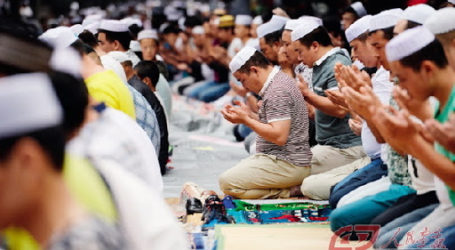





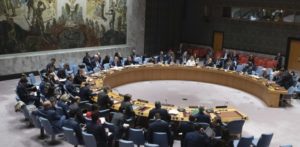


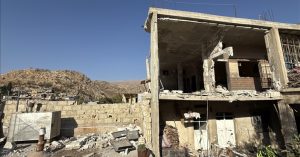
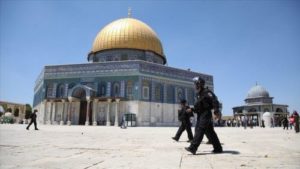
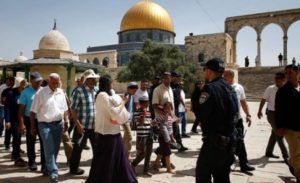

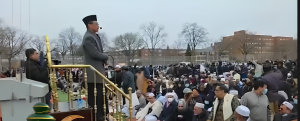
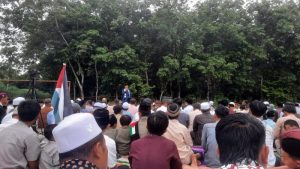
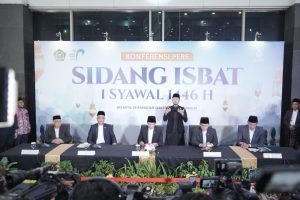














 Mina Indonesia
Mina Indonesia Mina Arabic
Mina Arabic